
After serving Southern shoppers for nearly a century, Winn-Dixie is exiting four U.S. states in one of the most significant grocery store closures in recent memory.
Its parent company, Southeastern Grocers, announced in October 2025 that it would rebrand as The Winn-Dixie Company, sell or close 40 stores across Alabama, Georgia, Louisiana, and Mississippi, and focus almost entirely on Florida, as well as a handful of stores in southern Georgia.
Longtime customers and employees described the decision as the “end of an era,” emphasizing how deeply Winn-Dixie had become part of daily life in many small Southern towns.
Humble Beginnings

Winn-Dixie’s journey began in 1925 when founder William Milton Davis bought a small Miami grocery store called Rockmoor Grocery using a $10,000 loan from his father.
Davis saw potential in the new “self-service” model, where customers selected goods from shelves and paid cash rather than using credit. By 1927, their family-run business had grown to five stores under the name Table Supply Stores.
Those early years defined the company’s core identity: a family-run, community-centered business that continually sought to modernize grocery retail.
Empire Building
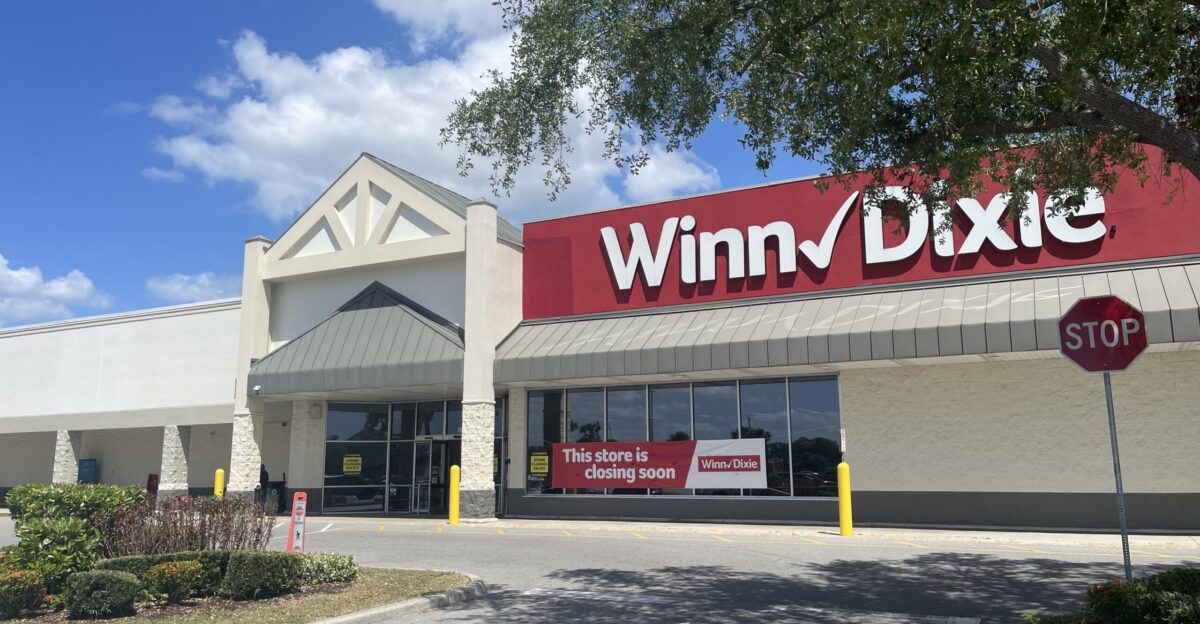
The Davis family proved to be shrewd builders of a regional empire. In 1931, they bought the Lively Stores chain, boosting their footprint to 33 stores across Florida.
The company continued to grow through acquisitions, purchasing control of the Winn & Lovette chain in 1939 and relocating its headquarters to Jacksonville by 1944.
The defining moment came in 1955, when Winn & Lovett merged with Dixie Home Stores, forming the familiar Winn-Dixie name and logo. In 1952, it became the first Florida-based company listed on the New York Stock Exchange.
Peak and Decline
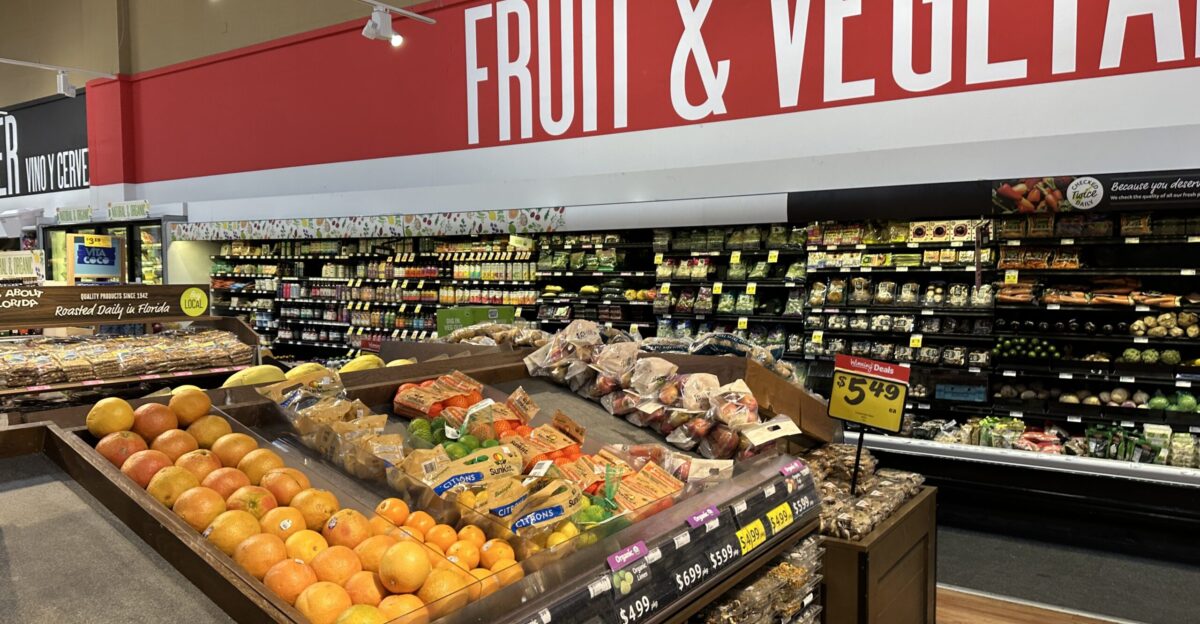
By the early 2000s, Winn-Dixie was nearing its peak, operating over a thousand stores in five Southern states and the Bahamas. Its new Marketplace-format stores were big, full-service centers with pharmacies and delis.
However, the rise of Walmart Supercenters and low-cost regional chains altered the landscape. Winn-Dixie lacked Walmart’s pricing power and efficiency.
By 2004, industry analysts noted that Walmart had opened stores within just 10 miles of 80 Winn-Dixie locations, forcing the grocer into a losing battle as consumers increasingly prioritized low prices over tradition.
Bankruptcy Shock

In 2005, Winn-Dixie’s years of losses came crashing down. The company filed for Chapter 11 bankruptcy protection on February 22 of that year, closing 326 stores and eliminating over 22,000 jobs.
At the time, it still operated about 920 stores and employed nearly 80,000 people, but competition and poor management decisions had eroded its profits.
The company eventually secured an $800 million loan to stay afloat. A lengthy restructuring followed, and while Winn-Dixie reemerged from bankruptcy two years later, it never regained its former dominance.
Alabama’s Loss
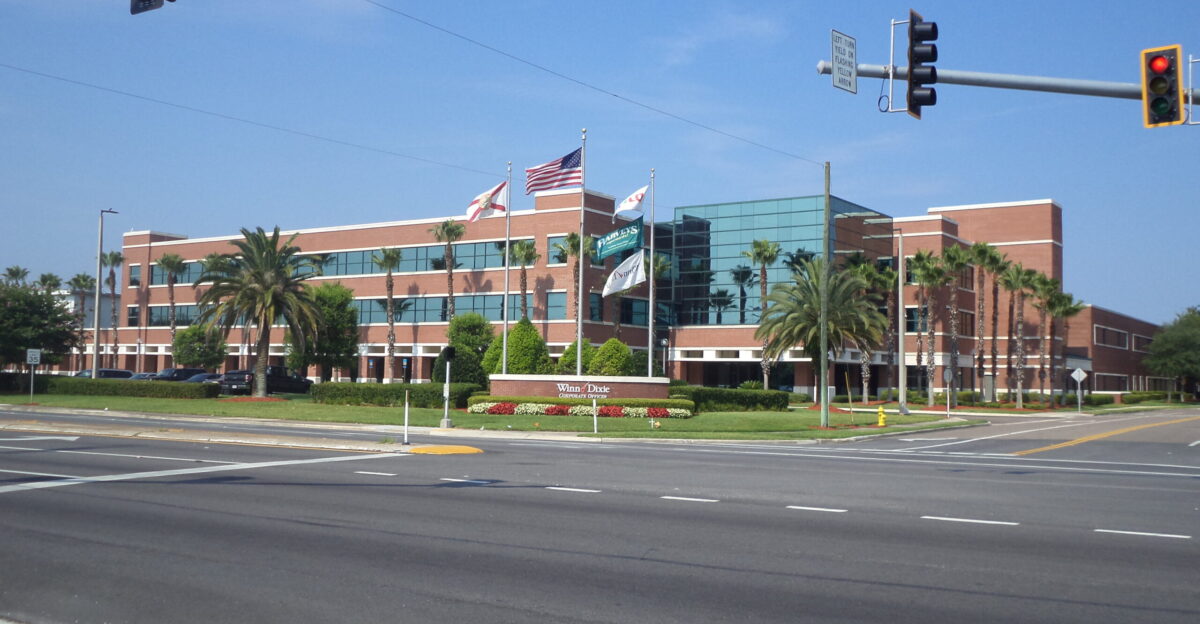
The new round of closures hits Alabama especially hard. The company confirmed that all 20 of its stores in Alabama would either close or be sold to competitors by the end of 2025.
This alone accounts for about 5% of Winn-Dixie’s nationwide presence. Several Birmingham-area stores have already found buyers, including Food City, which will take over three suburban locations in Fultondale, Trussville, and Jasper. But the rest remain uncertain.
The loss affects hundreds of workers and entire communities that have long depended on Winn-Dixie as their leading grocery provider.
Three-State Exodus
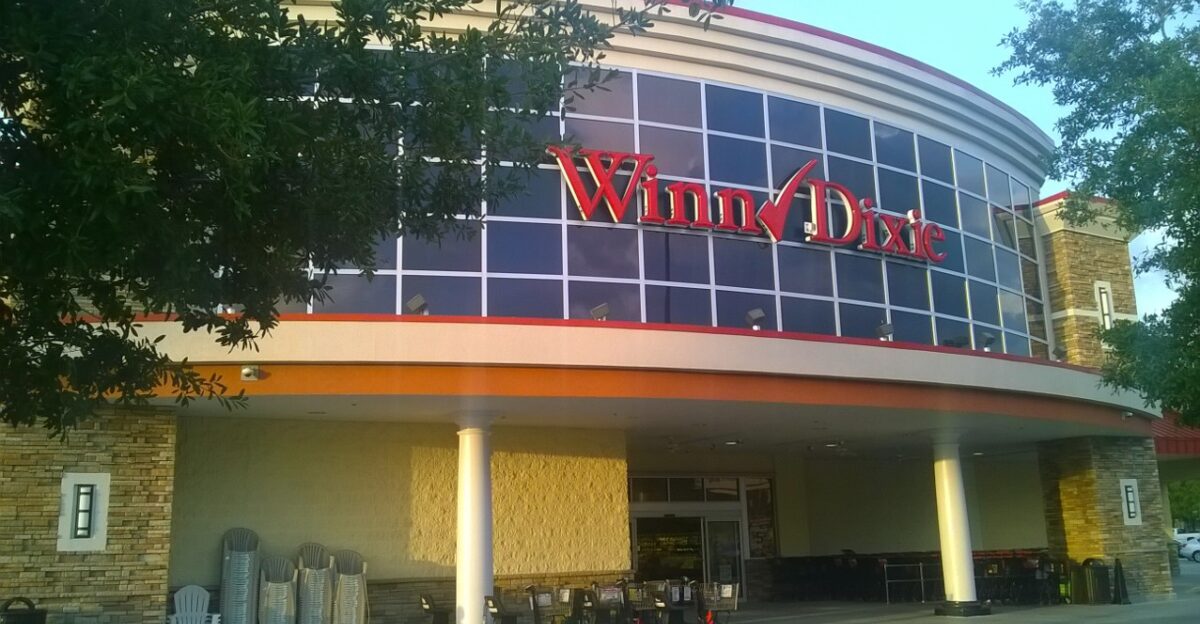
Beyond Alabama, the retreat continues in Louisiana, Mississippi, and Georgia. In Louisiana, all remaining stores will close or change hands, with two Baton Rouge stores converting into Super 1 Foods locations.
Mississippi will lose its last remaining Winn-Dixie location altogether. Georgia will keep only a handful of stores in towns near the Florida border, such as Brunswick, Valdosta, and Folkston.
Other Georgia cities, including Swainsboro, Fitzgerald, and Douglas, will see Harvey’s or Winn-Dixie stores sold to new owners, such as Piggly Wiggly. Local headlines in states across the Gulf region called the change “a farewell to a Southern staple”.
Worker Uncertainty
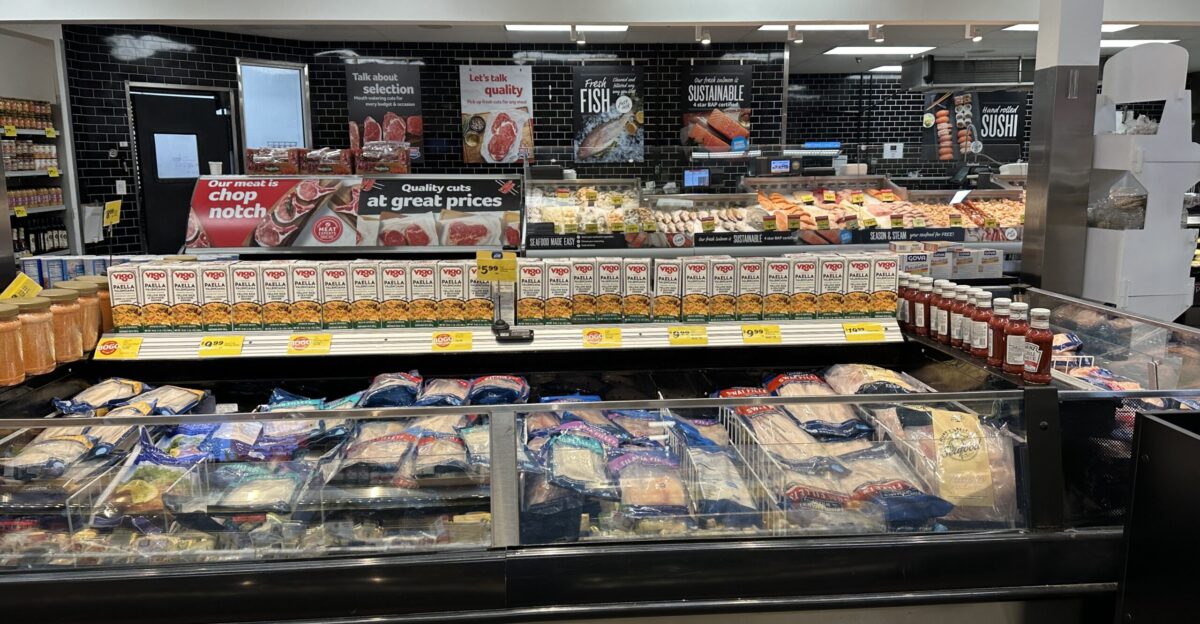
Each closing store employs around 80 people. That translates to roughly 1,600 workers in Alabama alone, with thousands more affected across all four states.
The company promised to help facilitate job transfers or assist new owners in rehiring, but no binding agreements guarantee employment retention. Employees have voiced frustration over unclear severance terms and slow communication.
Winn-Dixie’s workforce now faces an uncertain future with limited protections. The timing, right before the holidays, has left families rushing to find new jobs amid competing layoffs throughout the retail sector.
Food Desert Fears
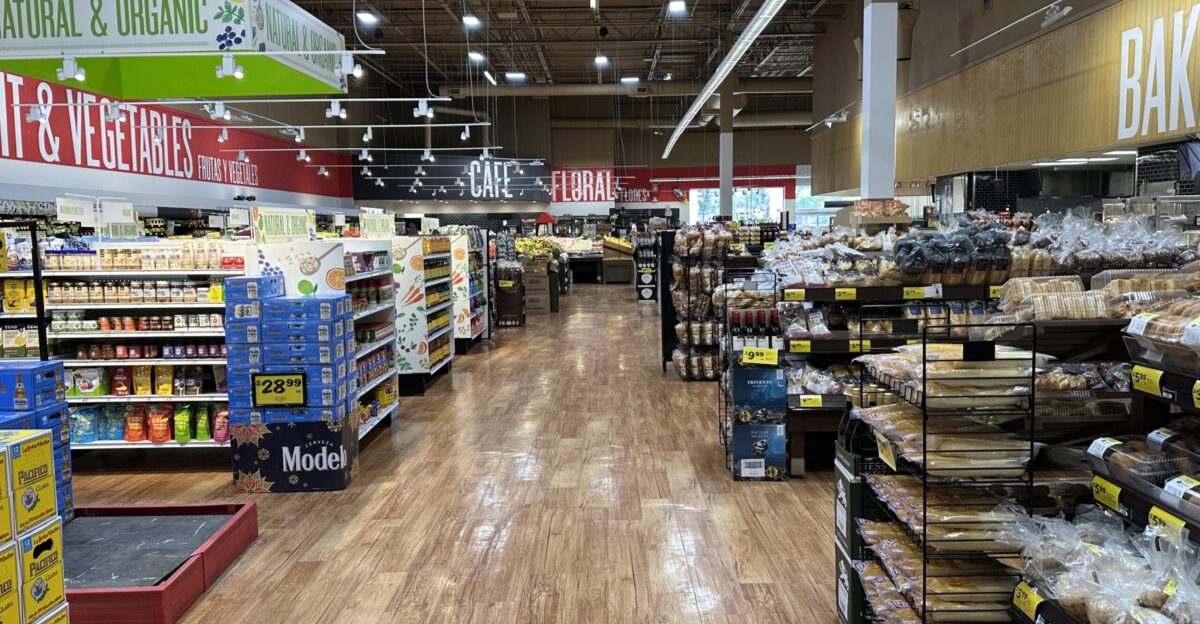
In rural parts of the South, grocery closures can leave entire communities without access to full-service supermarkets.
The U.S. Department of Agriculture defines these areas as “food deserts,” where affordable, fresh food is scarce and often inaccessible, especially for residents without access to a car. Alabama, Mississippi, and Louisiana already rank among the worst states for food insecurity.
With Winn-Dixie’s exit, some towns could find themselves without any major grocer nearby. Local leaders are scrambling to attract replacements before the holidays, fearing shortages of fresh produce and meats — the very staples Winn-Dixie once prided itself on providing.
The Aldi Factor
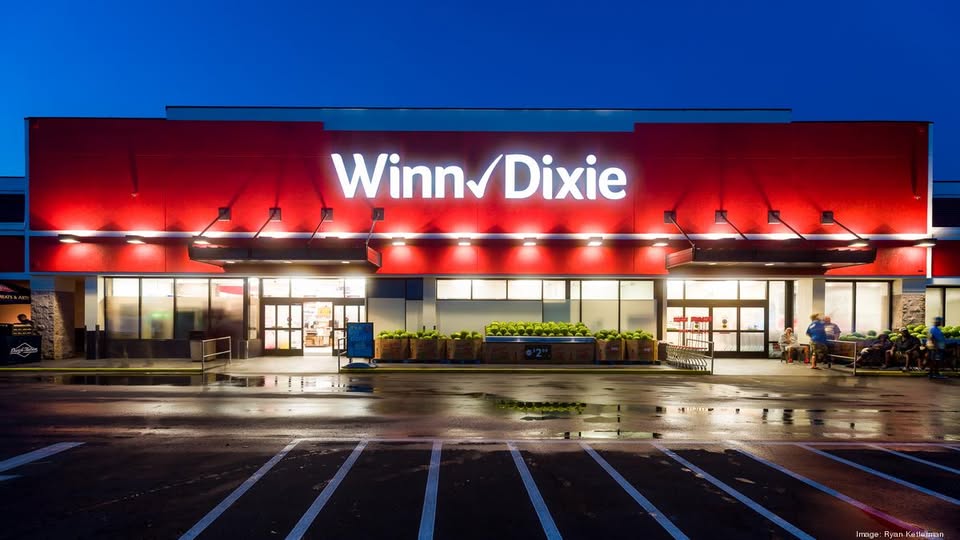
Winn-Dixie’s exit can’t be understood without looking at Aldi’s growing influence. In 2023, the German discount supermarket giant bought about 400 Winn-Dixie and Harvey’s stores from Southeastern Grocers.
Aldi kept about half of them for conversion into its no-frills store model and sold most of the rest back to CEO Anthony Hucker and investment partners. Aldi’s expansion left Winn-Dixie a smaller, leaner company focused mainly on Florida.
Although Winn-Dixie introduced the plan to cut costs, it also revealed a more profound structural weakness — even after nearly a century, the company couldn’t rival discount chains that optimized every penny and operated with minimal staff.
Discount Disruption

Chains like Aldi and Lidl have reshaped grocery retail worldwide. They operate small stores, offering a limited selection of items, mostly private-label brands, and provide lightning-fast restocking.
This model allows prices to be significantly lower than those of traditional supermarkets — often by 20% or more. In 2025, Aldi reported nearly 30% growth in store traffic across the U.S., while traditional grocers achieved a growth rate of only 1%.
The grocery profit margin, once 5%, has shrunk below 3% in many regions — not nearly enough for older chains burdened with large stores and expensive labor.
CEO’s Aldi Roots
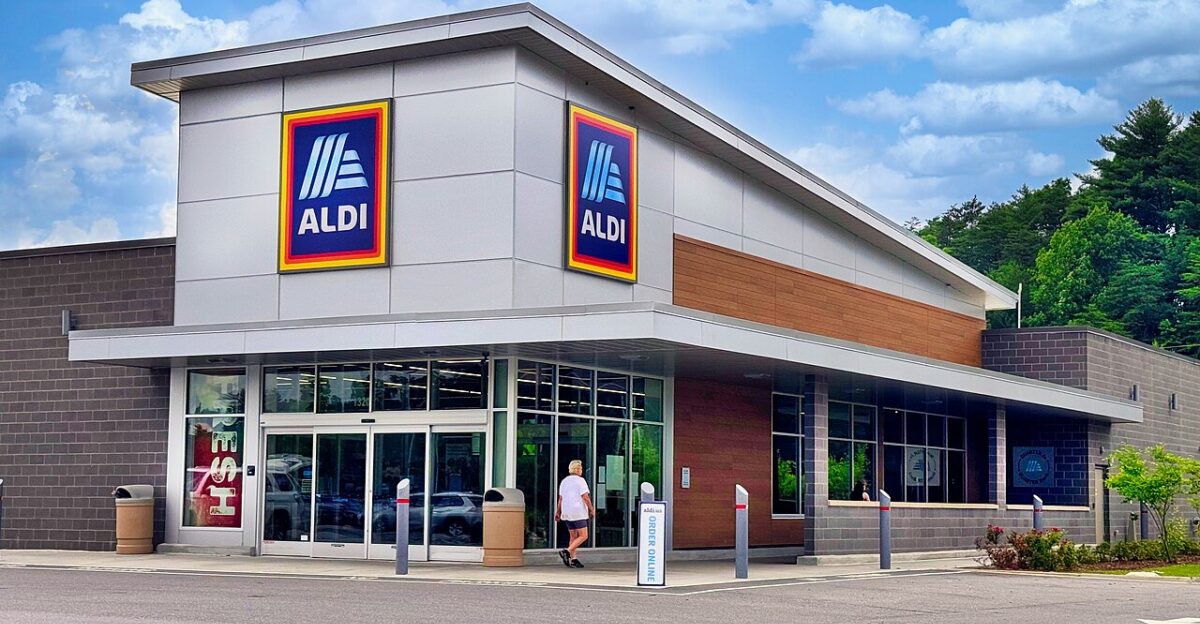
There’s irony in the fact that Winn-Dixie’s CEO, Anthony Hucker, once worked for Aldi for a decade.
A native of the U.K., he helped develop Aldi’s operations in several countries before spending seven years at Walmart and later leading Giant Food and Schnuck Markets. Hucker joined Southeastern Grocers in 2016 and became its CEO shortly thereafter.
His insider knowledge of Aldi’s efficiency likely influenced the decision to sell to Aldi in 2023 — and perhaps the pragmatic choice to shrink and refocus the chain’s footprint in 2025.
Florida Fortress
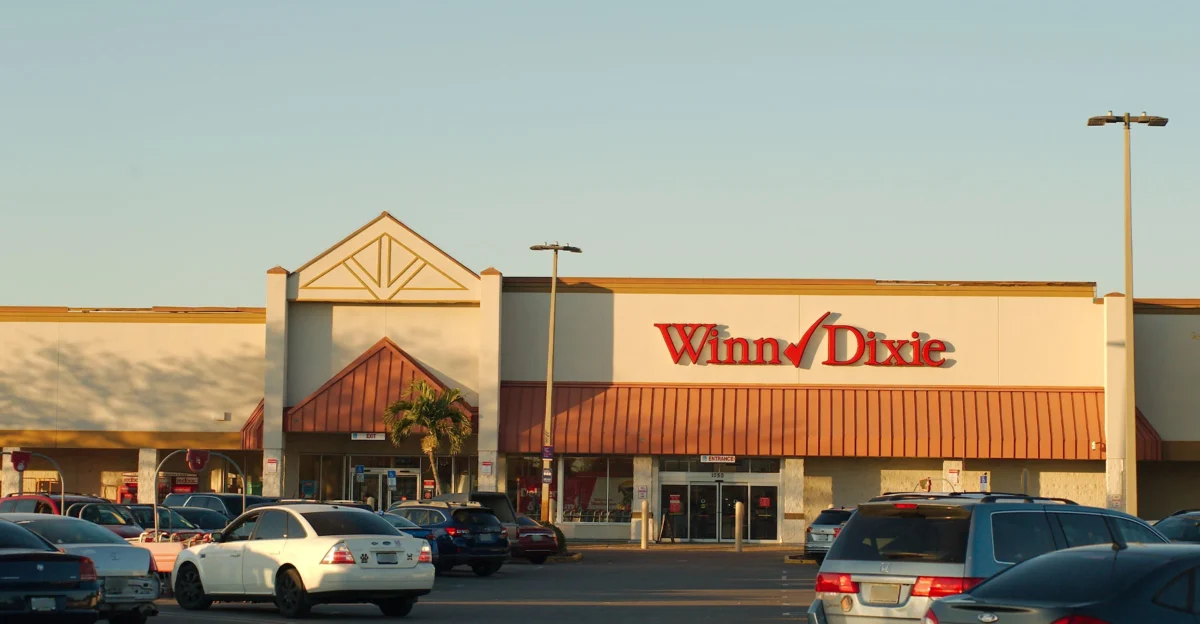
The reorganized Winn-Dixie Company will remain headquartered in Jacksonville, Florida, just as it has been for 80 years. The company plans to operate approximately 130 grocery stores and 140 liquor stores, primarily concentrated in Florida, along with a few locations in southern Georgia.
It’s even buying three Hitchcock’s Markets in small North Florida towns to strengthen its regional base. CEO Anthony Hucker said, “As we enter our next century, we’re growing where our roots run deepest.”
The company aims to modernize its stores through upgrades, community events, and enhanced in-store experiences that reflect the local flavor, rather than chasing competitors across state lines.
New Operators
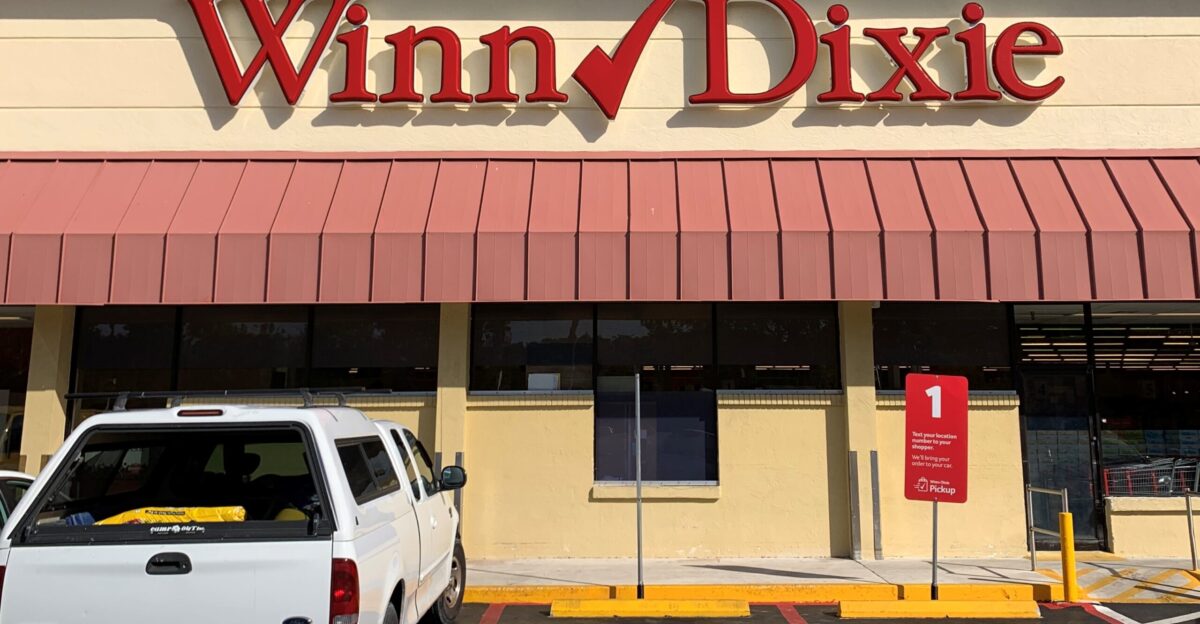
So far, only seven of the 40 sites set to close or sell have confirmed new operators. Alongside Food City and Piggly Wiggly, several Baton Rouge locations will rebrand as Super 1 Foods.
The rest remain “pending.” Supermarket transitions are complex, requiring negotiations over leases, licenses, and local suppliers.
If new owners don’t step in quickly, many of these buildings could remain vacant — a worrying trend in mid-sized cities where multiple grocery stores have already closed over the past decade.
Timeline Pressure

All closures and transitions are scheduled for completion by early 2026, leaving just months to finalize sales, hire staff, and restock shelves.
The tight turnaround raises concerns about disrupted food access, particularly during the holiday season. Employees must decide whether to relocate to the remaining Florida stores or risk losing their jobs.
While corporate restructuring may appear clean on paper, its real-world impact is chaotic — families balancing holiday bills with job loss and uncertainty about health benefits as the year comes to a close.
Regulatory Scrutiny
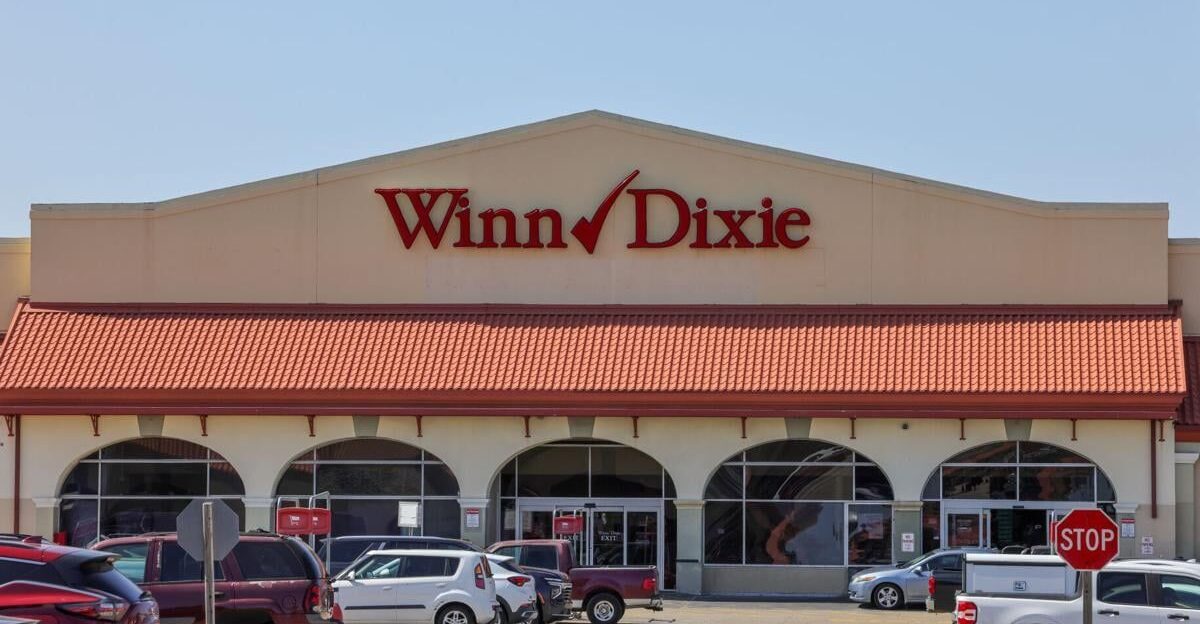
The Winn-Dixie divestitures are occurring amid heightened scrutiny of grocery mergers and market shifts. Earlier in 2024, the Federal Trade Commission blocked the proposed merger between Kroger and Albertsons on the grounds of competition.
Although Winn-Dixie’s situation is different, regulators will still likely watch the aftermath closely, especially in rural areas where closures could create monopolies or food deserts.
So far, no officials have intervened, but attorneys general in Alabama and Louisiana are reportedly monitoring the impacts on consumers.
Industry Parallels
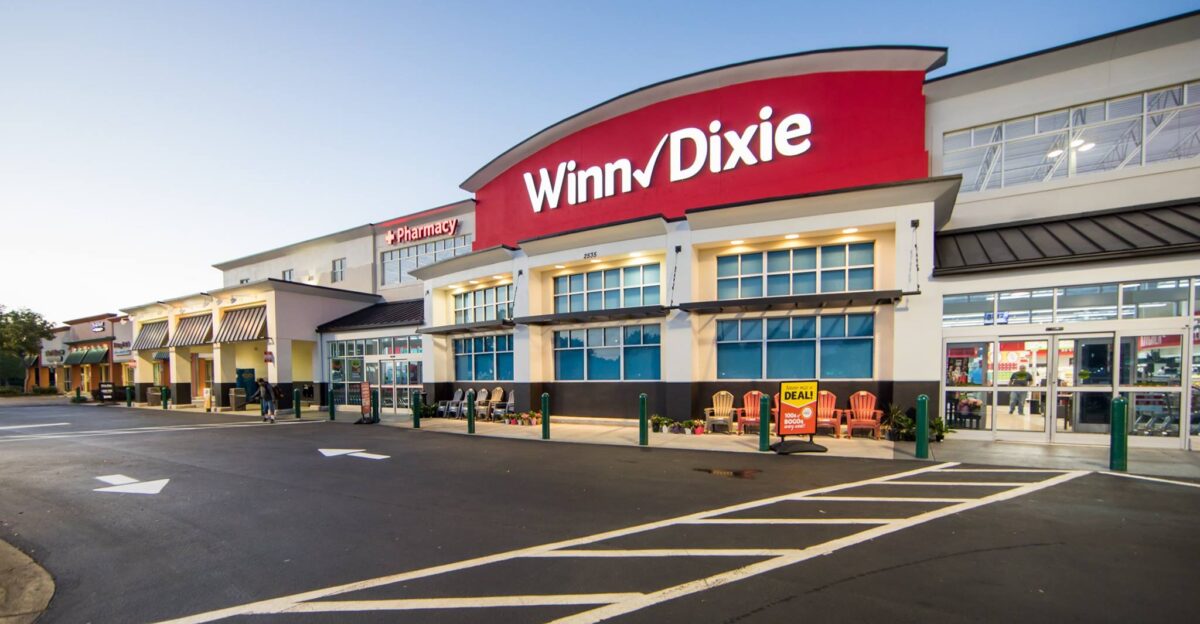
Winn-Dixie’s retreat mirrors a broader crisis across the U.S. grocery sector. In 2025 alone, analysts recorded more than 86,000 retail job losses nationwide — a 200% rise over the previous year.
High labor costs, inflation, and aggressive discount competitors continue to put pressure on traditional grocers. Other regional chains, such as Tops, Marsh, and A&P, faced similar downfalls over the past two decades.
Analysts warn that “traditional supermarkets are under siege by discount retailers.” Consolidation, while common, no longer guarantees survival — even large chains like Albertsons are cutting billions in costs to stay relevant in an era dominated by Walmart, Costco, and Aldi.
Public Reaction
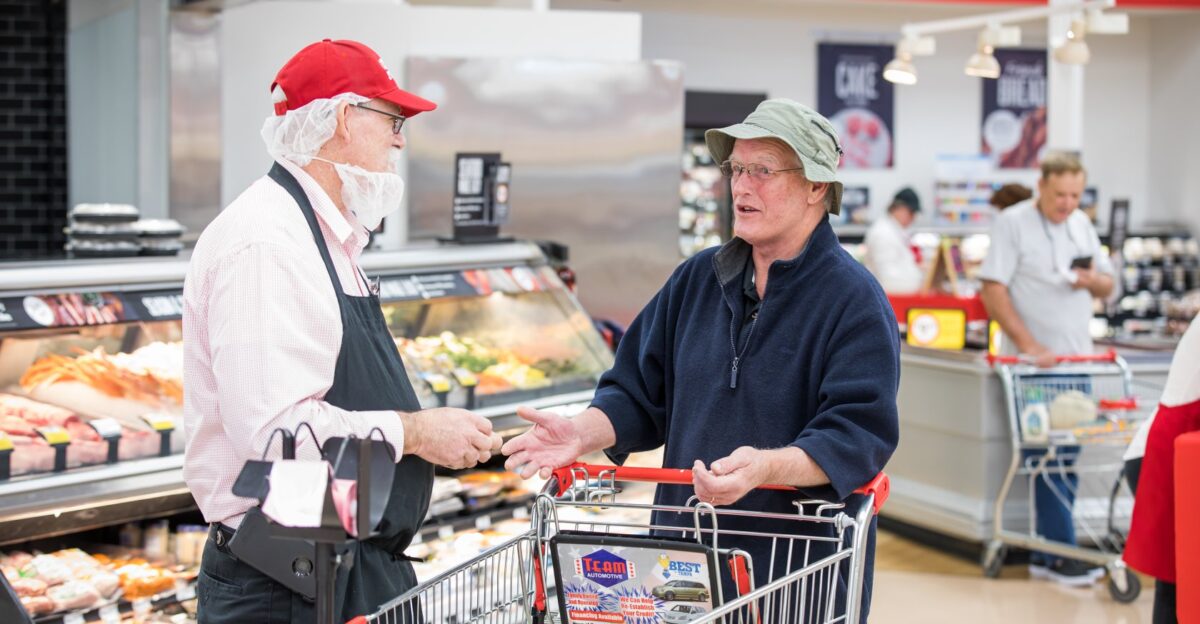
Public reaction to Winn-Dixie’s departure has been emotional. On social media, customers share nostalgic memories of shopping trips with their parents or reminisce about the Winn-Dixie commercials of the 1980s.
But many also admit they haven’t shopped there in years, lured away by lower prices elsewhere. Workers expressed disappointment that executives didn’t provide more transparent communication about severance or rehire plans.
In Alabama, local activists are pressing city leaders to attract new grocers before neighborhoods lose essential access to fresh food. The closure symbolizes both economic progress and cultural loss — a sign of how changing market forces reshape even beloved hometown brands.
Historical Echoes

Winn-Dixie’s 2025 restructuring recalls its 2005 bankruptcy — a painful reminder that legacy grocery chains often relapse under the same competitive pressures.
The once-mighty A&P, Dominick’s, and Marsh Supermarkets all followed similar paths: regional icons overwhelmed by discount and warehouse retailers. As retail economics evolved, these mid-tier supermarkets struggled to keep pace with the changes.
Winn-Dixie’s new pivot to Florida may prevent its extinction, but it highlights how few traditional grocers have successfully adapted to the modern grocery landscape.
Century Shift
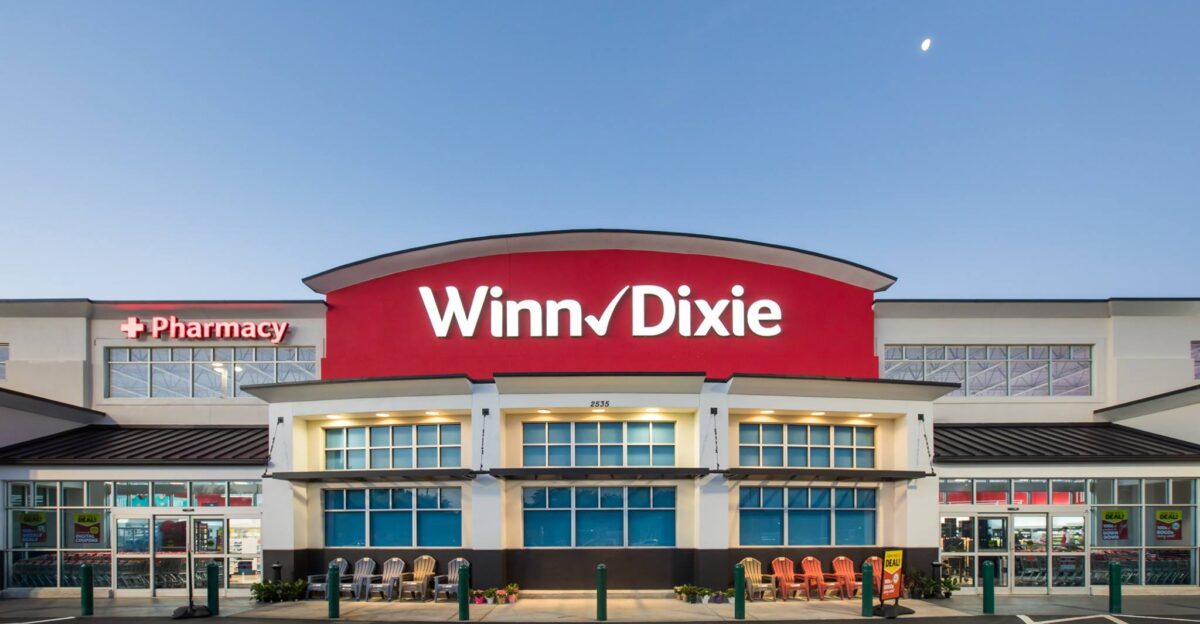
After 100 years, a cornerstone of Southern retail life is shrinking back to its Florida roots.
The rebranded Winn-Dixie Company will operate just 130 grocery stores and 140 liquor stores, down from nearly 400 only a few years ago. For thousands of former employees and millions of loyal customers, this is more than a corporate restructuring — it’s the loss of a familiar neighbor and a way of life.
While some will find cheaper deals at Aldi or Walmart, others will have to drive miles farther for groceries.